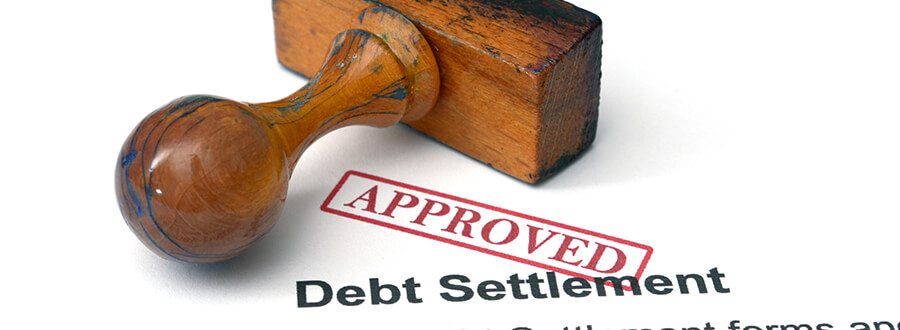Key Points
- Both bankruptcy and debt settlement result in late payments and closed accounts, which initially lower your credit score.
- The impact of late payments diminishes over time and eventually drop off your credit report after 7 years (84 months).
- Credit recovery depends on your ability to make on-time payments on open credit accounts and keep revolving balances low.
- Bankruptcy will be reported on your credit report for 7 years or 10 years depending on the type of bankruptcy filing you complete.
- Once an account is settled in full in a debt settlement program, it no longer negatively impacts your credit score in the FICO scoring model 9 and above.

Marketing agencies, and the creditors that hire them, have convinced us that good credit represents power, wealth and even self-worth.
Advertisements tell you that a high credit score gives you the power to buy the things you want because banks will fight for your business. When access to credit feels like an essential part of life, it can be hard to let that notion go. Even if it keeps you trapped in mountains of debt. Even if it prevents you from achieving true financial freedom.
The truth is that high debt balances on unsecured debt is already hurting your credit. Making only the minimum monthly payment on credit card accounts can take up to 30 years or more to fully pay off the balance, even if you never made another purchase on the account. High-interest rates, which compound daily, combined with low monthly payments could result in paying three times the original purchase price on your debt.
If you are tired of spending $1,000 or more each month on high-interest debt, just to see balances barely move, then maybe it’s time to take a second look at the impact bankruptcy and debt settlement has on your credit.
What Happens to Your Credit Score When You Miss Payments?
Late payments are the single most important element of your credit score. But not by much.
FICO uses five key metrics to calculate your score.
- Late payments represent 35%
- Utilization (your balance in relation to your limit) is 30%
- Credit history, 15%
- New credit, 10%
- Credit mix, 10%.
Late payments and credit utilization make up 65% of your overall score. Meaning, if you have maxed out credit cards, you are already experiencing a negative impact on your credit score. Add a few missed payments and your score can quickly drop 75 to 100 points or more.
How much more your credit score will fall because of late payments depends on the other factors in the credit scoring algorithm. Keeping your mortgage or auto loan current, and a long credit history can offset some of the adverse effects of late payments.
The effect of a delinquency on your credit score diminishes over time.
Both bankruptcy and debt settlement will likely result in late payments on your accounts, followed by an initial decline in your credit score. The question becomes, how long will it take before lenders are interested in extending you credit again. One program results in restoring your credit much faster than you might think.
Credit After Bankruptcy
If you qualify for a Chapter 7 bankruptcy, sometimes called a liquidation bankruptcy, you eliminate your debts without repayment. This route is the fastest and least expensive in terms of dollars but has the greatest negative impact on your credit score. A Chapter 7 bankruptcy remains on your credit file for ten years, and you must attest to filing bankruptcy indefinitely when applications for employment, a new mortgage, new utility service or military service ask the bankruptcy question. Failure to disclose a prior filing, which is also generally publicly available information, could result in not receiving a loan, mortgage, or new utility service.
In a Chapter 13 Bankruptcy, you repay creditors a portion of the balance owed over a three to five-year period. A Chapter 13 bankruptcy remains on your credit file for seven years and makes it difficult if not impossible to obtain new credit during this time. Furthermore, the bankruptcy court must approve any new credit or other significant spending while in the program. You must also attest to filing bankruptcy on applications for employment, new credit, for a mortgage or when applying for most jobs.
In both cases, all accounts included in the bankruptcy will be closed and unavailable for purchasing.
Rehabilitating Your Credit After Bankruptcy
The initial credit score drop comes from late payments and closed or charged-off accounts. If bankruptcy results in no open credit accounts remaining, it could impair your ability to rebuild credit for a significant period.
Auto and home lenders typically will not consider an application until three to five years after the discharge of a bankruptcy. Credit card offers, on the other hand, could begin earlier with low limits, secured deposit balances required and high fees, and high interest rates.
Credit After Debt Settlement
Debt settlement also results in closed accounts and missed payments. Creditors can report delinquencies and closed accounts on your credit report for seven years. Any accounts enrolled in a debt settlement program will be closed and may also be charged off if not settled within 180 days of the most recent payment.
Debt settlement, however, gives you more control over the process, and doesn’t require a trustee to liquidate assets or monitor and approve your spending or the opening of new credit lines. You may choose to keep some accounts open to expedite credit recovery. You can also over fund your savings account to pay off debts faster, which will also lead to faster credit improvement. Most people can complete a debt settlement program in 24-48 months if able to adequately save funds under the program requirements. In doing so, consumers emerging from debt settlement can begin to restore their credit 3-6 years sooner than those who opted to resolve their debt through bankruptcy.
Rehabilitating Your Credit After Debt Settlement
It is possible to settle all accounts in three to four years and have your credit return to previous levels within 12 to 24 months after completing a debt settlement program. Credit card offers could begin arriving before you complete the debt settlement arrangement. However, running up new debt balances could sabotage your efforts to get your debt under control.
